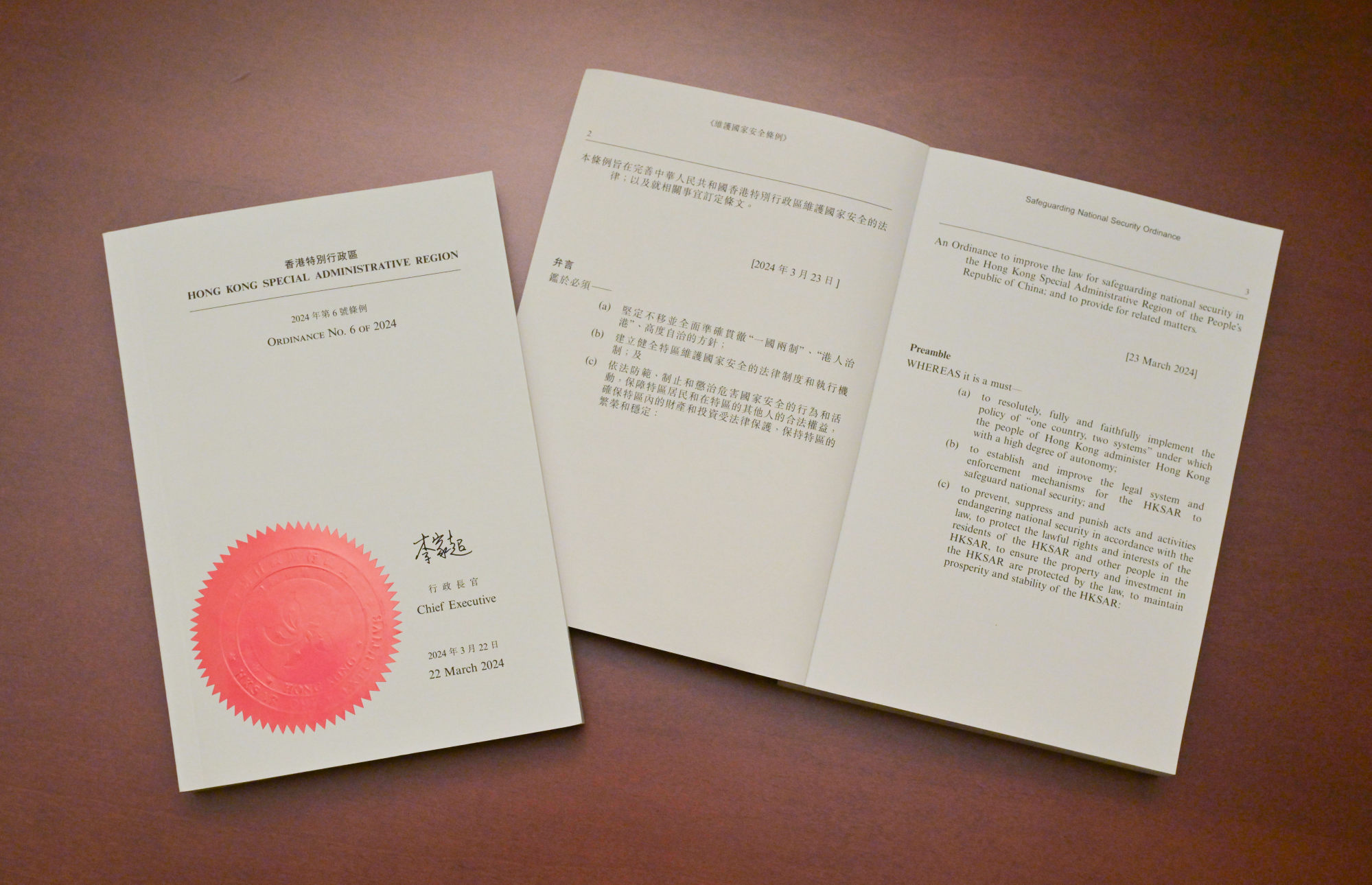“Any attempt by foreign countries or external forces to undermine Hong Kong’s prosperity and stability by slandering the city’s situation will only expose their own weakness and faulty arguments and be doomed to fail,” a government spokesman said.
Earlier on Thursday, the commission, the EU’s executive arm, issued a 27-page report outlining the political and economic developments in the city in 2023. The report has been an annual exercise since 1997 when Hong Kong returned to Chinese rule.
The commission also said the “one country, two systems” principle under which the city was governed was being dismantled.
“The 2023 annual report illustrates in great detail the continuous erosion of the rights and freedoms of the people of Hong Kong and the dismantling of the ‘one country, two systems’ principle,” commission vice-president and foreign policy chief Josep Borrell said.
“The political opposition in Hong Kong has been effectively excluded from elections. The national security law continues to be used to stifle dissent, including abroad.
“These developments undermine trust in the rule of law in Hong Kong and affect Hong Kong’s standing as an international business hub.”
The report highlighted district council reform and the election that followed, saying it had led to “a further decrease of political pluralism”.
“The erosion of Hong Kong’s autonomy and fundamental freedoms and rights, meant to be protected until at least 2047, continued [in 2023],” it said.
“Trials brought against pro-democracy activists, advocates and politicians under the [national security law] and related legislation continued, in some cases with considerable delays.
“Many defendants have been held in custody since March 2021, in some cases in solitary confinement.”
The report also noted the extraterritorial power of the national security law and that the government had twice issued arrest warrants for activists overseas.
It added that “despite internet freedom being generally upheld in Hong Kong, the authorities continued to block online content considered sensitive”.
“These developments continue to undermine confidence in the rule of law in Hong Kong.”
The government said at the time it “strongly opposed” the vote, calling it “typical political hegemony and hypocrisy with double standards”.

Thursday’s report, despite the criticisms, hailed the city’s courts for their role in advancing sexual and gender minorities’ rights. There were “hopeful” signs of progress on such rights, “mainly carried forward by the judiciary”, it said.
The report also pointed to substantial commercial links between the EU and Hong Kong. With 1,550 companies, the bloc remained the biggest foreign business community in the city, and was Hong Kong’s third largest trading partner.
The report also acknowledged that “Hong Kong exercises independent authority in implementing commercial agreements and sets monetary policy autonomously from mainland China”.
It was also satisfied that the city “remained, notably on economic policy issues, a separate legal jurisdiction from mainland China, maintaining a separate currency not limited by capital limitations, as well as separate regulatory structures to supervise companies operating in the territory”.
The report said in the first 11 months of 2023, bilateral trade in goods between the EU and Hong Kong amounted to 28.5 billion euros (US$30.7 billion), an increase of 4.2 per cent year on year.

